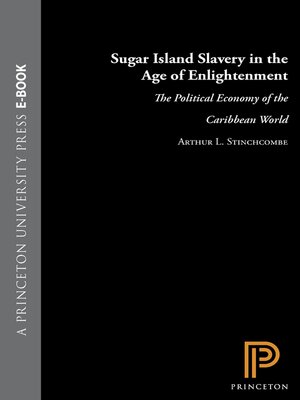Sugar Island Slavery in the Age of Enlightenment
ebook ∣ The Political Economy of the Caribbean World
By Arthur L. Stinchcombe

Sign up to save your library
With an OverDrive account, you can save your favorite libraries for at-a-glance information about availability. Find out more about OverDrive accounts.
Find this title in Libby, the library reading app by OverDrive.



Search for a digital library with this title
Title found at these libraries:
| Library Name | Distance |
|---|---|
| Loading... |
Plantations, especially sugar plantations, created slave societies and a racism persisting well into post-slavery periods: so runs a familiar argument that has been used to explain the sweep of Caribbean history. Here one of the most eminent scholars of modern social theory applies this assertion to a comparative study of most Caribbean islands from the time of the American Revolution to the Spanish American War. Arthur Stinchcombe uses insights from his own much admired Economic Sociology to show why sugar planters needed the help of repressive governments for recruiting disciplined labor. Demonstrating that island-to-island variations on this theme were a function of geography, local political economy, and relation to outside powers, he scrutinizes Caribbean slavery and Caribbean emancipation movements in a world-historical context.
Throughout the book, Stinchcombe aims to develop a sociology of freedom that explains a number of complex phenomena, such as how liberty for some individuals may restrict the liberty of others. Thus, the autonomous governments of colonies often produced more oppressive conditions for slaves than did so-called arbitrary governments, which had the power to restrict the whims of the planters. Even after emancipation, freedom was not a clear-cut matter of achieving the ideals of the Enlightenment. Indeed, it was often a route to a social control more efficient than slavery, providing greater flexibility for the planter class and posing less risk of violent rebellion.







